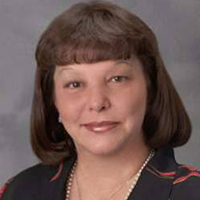Instant Discount
Purchase Any WEBINAR And Get Off
|
Speaker |
Sue Dill Calloway |
|
Industry |
Nursing |
|
Speciality |
Nursing |
|
Available |
All Days |
|
Duration |
120 Minutes |
Description
Safe Opioid Use, IV Medication, Blood and Medication Administration Requirements: Complying with the CMS’s Hospital CoPs
Did you know that CMS has a requirement that the first time an opioid is given by a nurse, a special assessment must be done? Do you have a safe opioid policy that specifies what vital signs must be taken, how often you take the vital signs, and if you are going to use pulse ox and/or ETCO2? Many requirements must be met when the patient is provided their first opioid.
This program will discuss the revised standards on the CMS hospital CoPs on safe opioid use, IV medication, and blood transfusion. This is the fifth time this section has been amended in the past few years along with an amendment last to nursing section 405 which addresses safe injection practices, compounding, and beyond use date.
The following are also covered: CDC opioid guidelines, Joint Commission final pain management guidelines, federal guidelines for opioid programs, the opioid epidemic, and required hospital policies and training. The CMS standards on the care of the patient receiving opioids also apply to critical access hospitals.
In the survey memo on the care of patients on opioids, CMS states that while this section is in the nursing section, hospitals are expected to meet the related requirements found in the pharmacy and quality assessment and performance improvement sections. This program will also discuss the ISMP IV Push guidelines for adults which hospitals should have. It will discuss the National Action Plan for ADR prevention related to the opioid recommendations. The CMS final worksheet on QAPI will be covered regarding the tracking of medication administration errors and adverse drug reactions. The CDC's final opioid guidelines are also discussed.
Hospitals are required to include this in their policy and procedure which must be approved by the Medical Executive Committee. Staff educated is required on the safe opioid use policy. This requires an assessment of the patient to determine who will be at risk for an adverse event from the use of IV opioids including PCA. Staff must be educated on the side effects and how to recognize them. CMS includes documentation requirements, minimum monitoring requirements, and information that must be explained to the patient. This memo amends four tag numbers: 405, 409, and 412 which are located in the nursing section, and PACU tag 957.
Learning Objectives
Agenda
Who Should Attend
Chief nursing officer, all nurses with direct patient care, nurse managers, nurse supervisors, nurse educator, pharmacists, director of the pharmacy, compliance officer, chief of medical staff, Medical staff coordinator, risk manager, patient safety officer, senior leadership, documentation specialist, hospital legal counsel, PI director, Joint Commission coordinator, regulatory officers, legal counsel, chief operating officer, chief medical officer, physicians, education department staff, board members, director of health information management, audit staff, and others responsible for compliance with hospital regulations including documentation compliance.

(RN, MSN, JD)
Sue Dill Calloway, RN, MSN, JD, is the president of Patient Safety and Healthcare Consulting and Education company with a focus on medical-legal education especially Joint Commission and the CMS hospital CoPs regulatory compliance. She also lectures on legal, risk management, and patient safety issues. She was a director for risk management and patient safety for five years for the Doctors Company. Sue Dill Calloway was the past VP of legal services at a community hospital in addition to being the privacy officer and the compliance officer. She was a medical malpractice defense attorney for ten years. She has 3 nursing degrees in addition to a law degree.
Sue Dill Calloway is a well-known lecturer and the first one in the country to be a certified professional in CMS. She also teaches the course for the CMS certification program. She has written 102 books and thousands of articles.